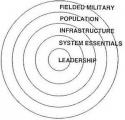We here bring our historical survey to a close, for it was not our design to give at a gallop some of the principles on which war has been carried on in each age, but only to show how each period has had
its own peculiar forms of war, its own restrictive conditions, and its own prejudices. Each period would, therefore, also keep
its own theory of war, even if every where, in early times, as well as in later, the task had been undertaken of working out a theory on philosophical principles. The events in each age must, therefore,
be judged of in connection with the peculiarities of the time, and only he who, less through an anxious study of minute details than through an accurate glance at the whole, can transfer himself into each particular age, is fit to understand and appreciate its generals.
But this
conduct of war, conditioned by the peculiar relations of States, and of the military force employed, must still always contain in itself something more general, or
rather something quite general, with which, above everything, theory is concerned.










 Now there was a rabble rousing politician who tried to lead a charge. Good pistol shot, though.
Now there was a rabble rousing politician who tried to lead a charge. Good pistol shot, though.

 )
)
Bookmarks